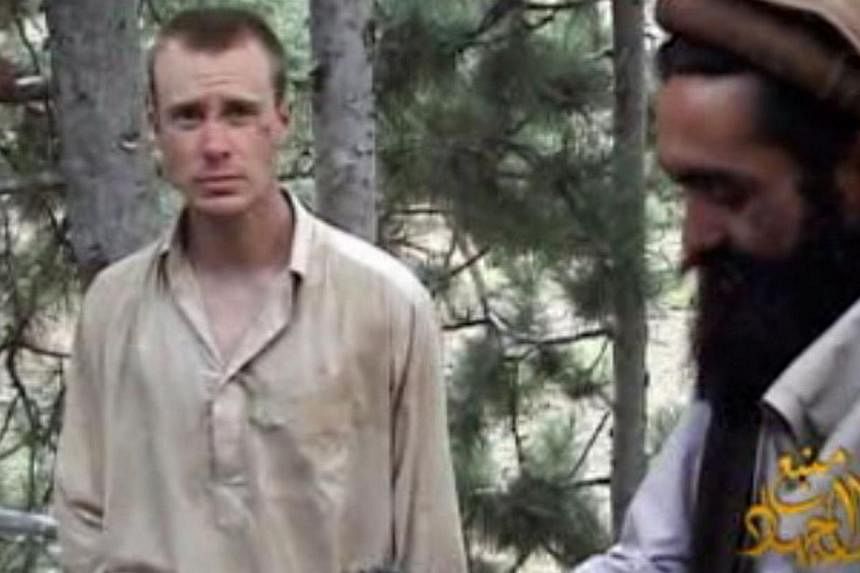WASHINGTON (AFP) - US political and military officials warmly welcomed Sergeant Bowe Bergdahl's release in Afghanistan, but questions about the circumstances of his kidnapping are becoming more insistent, with some soldiers accusing him of desertion.
From the White House to the Pentagon, officials have celebrated the recovery of the 28-year-old army sergeant from his Taleban captors, repeatedly citing the promise never to leave a soldier behind.
In his hometown of Hailey, Idaho, residents celebrated, with "Bowe's free at last" signs posted alongside the traditional yellow ribbons tied in a show of support for US troops.
But unease quickly set in in other quarters about just how Sgt Bergdahl was captured on June 30, 2009 in Afghanistan's eastern province of Paktika, where he was deployed at a forward operating base.
Some fellow soldiers, including members of Bergdahl's unit, have accused him of abandoning his post, and perhaps even deserting in a bid to flee to India.
"Every member of my brigade combat team received an order that we were not allowed to discuss what happened to Bergdahl for fear of endangering him. He is safe, and now it is time to speak the truth," Mr Nathan Bradley Bethea wrote in the Daily Beast.
"And that the truth is: Bergdahl was a deserter, and soldiers from his own unit died trying to track him down." Six soldiers died during failed efforts in 2009 to recover Sgt Bergdahl, Mr Bethea alleged.
Sgt Bergdahl - then 23 and a member of Blackfoot Company, in the 1st Battalion of the 501st Infantry Regiment - left the base on foot, leaving his helmet and rifle behind but taking a compass, he wrote.
"His fellow soldiers later mentioned his stated desire to walk from Afghanistan to India," Mr Bethea wrote, nevertheless adding: "I believe that Bergdahl also deserves sympathy."
On Facebook, the group "Bowe Bergdahl is NOT a hero" - which had more than 1,500 likes on Monday - was circulating a petition asking the White House to punish Bergdahl for going AWOL (absent without leave).
The petition had 5,200 signatures at 9.30pm.
"He walked off," former private Jose Baggett, another member of Blackfoot Company, told CNN. "He was there to protect us, and instead he decided to... go and do his own thing."
Pentagon spokesman Colonel Steve Warren said Sgt Bergdahl had not been classified as a deserter or with AWOL status.
"He's been promoted twice since his capture. He was due another promotion in June to staff sergeant," Col Warren said.
"We got him home. Our creed is that we'll never leave a fallen comrade behind and we have fulfilled our creed in this case," the spokesman added.
"There's time in the future to handle all the other matters."
Beyond the praise and celebration, US officials have nevertheless acknowledged that the questions will eventually need answers.
"We still don't have a complete picture of what caused him to leave his base that night," said Pentagon spokesman Rear Admiral John Kirby.
Sgt Bergdahl was transported on Sunday from Bagram air base north of Kabul to the Landstuhl military medical centre in southern Germany for further treatment and evaluation.
White House spokesman Jay Carney said on Monday the Pentagon would take the lead in looking into "all of the circumstances surrounding his initial detention and his captivity."
Desertion during wartime, at least in theory, is punishable by death in the United States. On social media, many argued that after nearly five years in captivity, Sgt Bergdahl had perhaps suffered enough.
In 2004, Sergeant Charles Robert Jenkins, who deserted his post at the border between North and South Korea in 1965 and spent nearly 40 years in the North, was sentenced to 30 days in confinement and received a dishonourable discharge.

